7th Union Budget 2024 Coming Soon Know its Impact on Taxes & Other Sectors
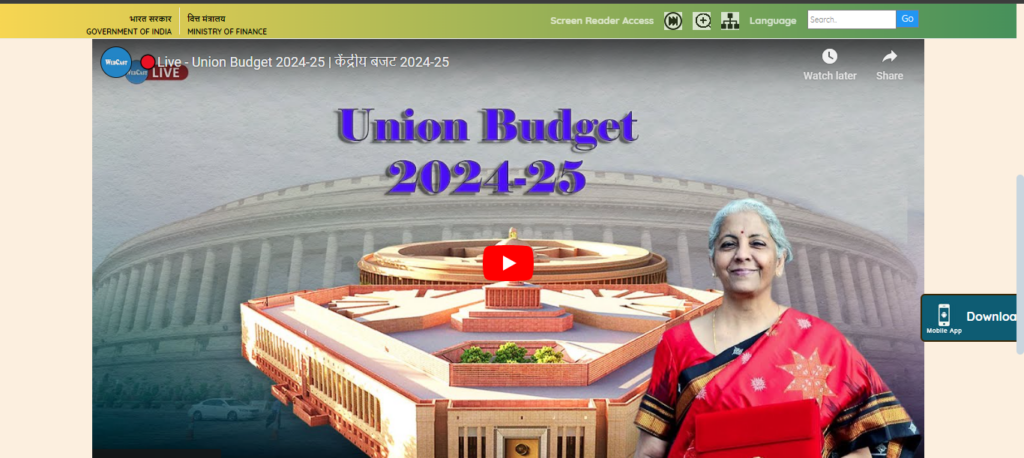
The most awaited event finally arrived on 23rd July in the parliament the honorable Finance Minister Nirmala Sitharaman for the 7th time will announce the union budget 2024.
Experts from every economic sector share their suggestions and assumptions on this upcoming significant event of the union budget 2024.
Every renowned entrepreneur, industrialist, small businessman, and even a general salary man keeps a keen eye. The monsoon season 7th Union Budget 2024 will set the future of the country’s financial journey for the next 5 years with investment in some major economic sectors.
This Budget 2024 session will be a record-breaking presentation for FM Nirmala Sitharaman. She will surpass the record held by the former PM and FM Morarji Desai of delivering 5 annual budgets with one interim budget from 1959 to 1964 during his tenure.
However, this monsoon budget session of 2024 will be more significant where she will surpass the former leagues of Manmohan Shigh, Arun Jaitley, P.Chidambaram and Yashwant Sinha while presenting her 7th budget of this year 2024.
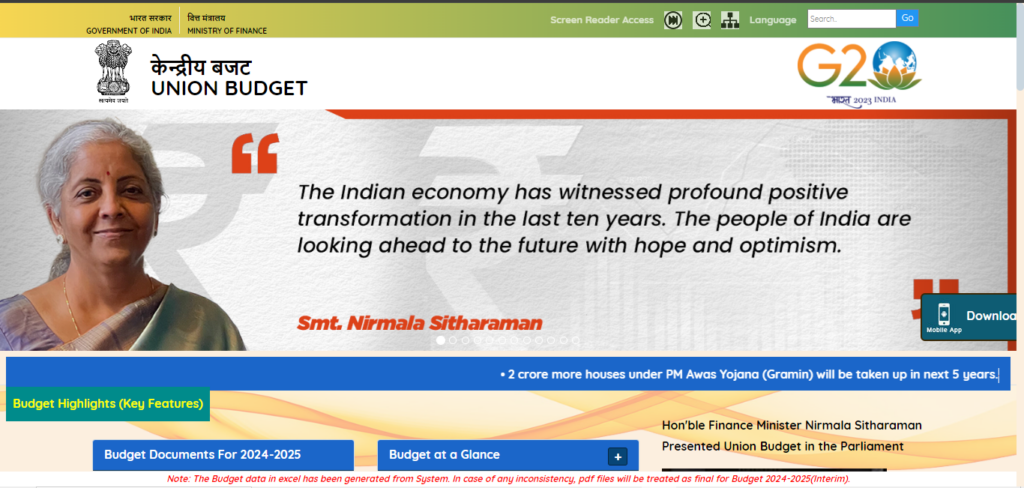
1. A Short Synopsis of the 7th Union Budget 2024
In this upcoming 7th budget 2024, various experts assume that this budget will focus on developing some key core economic areas.
The 2024 budget is likely designated to do a robust investment plan for the job creation, underdeveloped rural sectors, technology, and MSME sectors.
The 2024 budget also concentrates on energizing the fiscal sectors. Also, enhancing the ecosystem while building robust infrastructure for high-tech industries.
More likely to witness, some major reforms in tax slabs and procedures (middle-class families) and improving security measures with transparency of code of conduct to energize Foreign Investment.
Today (22nd July) FM Nirmala Sitharaman presented an economic survey in the parliament (Live), where she upheld the key survey results of the country’s economy and finance sector. Let’s discuss this in detail thus at last we will discuss its impact on tax procedures.
1.1. What Economic Survey Union Budget 2024 Tells Us?
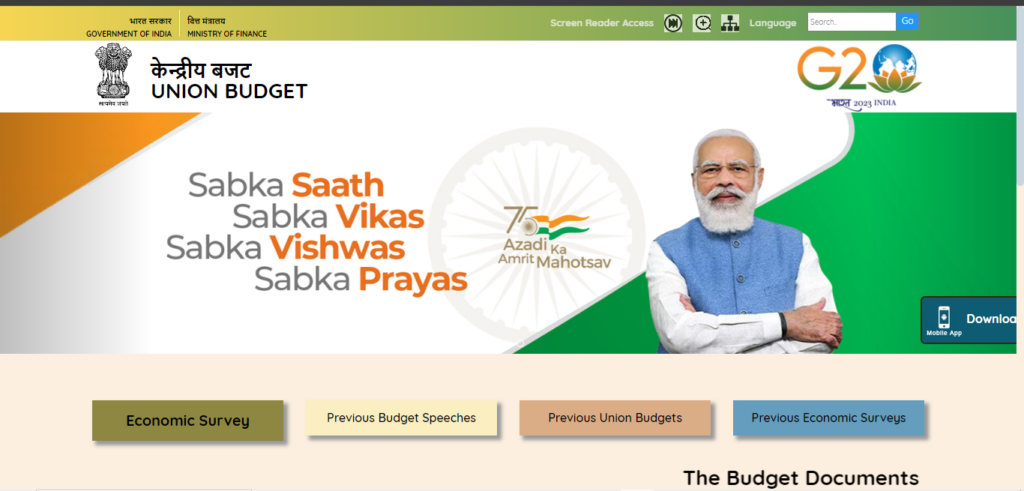
The Economic Survey Union Budget 2024 is drafted by the Department of Economic Affairs division of the Finance Ministry. This report provides the key analytical data about core economy sectors’ performance of the FY 2023-2024 April to March.
This data is finalized with the help of the chief adviser (appointed economic adviser) to foresee the growth indicators of different industrial sectors and their output performance.
1.1.1. Concentration on the Previous Central Theme of the Budget
The central theme of this budget 2024 will be a combined focus on the previous two central themes of 2022 and 2023. Whereas, the 2022 central theme focuses on the “Agile Approach” a response to tackling the COVID-19 Pandemic.
The 2023 central theme focuses on the “Recovery Complete” to re-energize economy sectors for sustainability. The 2024 budget will follow and focus on its predecessors keeping both previous themes in mind.
1.1.2. Various Industrialist Experts’ Suggestions and Requests

1.1.2.1. Suggestion;
During the economic survey session, Jindal Steel requested the central government to eliminate customs duty on ferronickel and molybdenum. The current custom duty rates, stand at 2.5% to 5% for both metals.
An excerpt report from a paper by Assocham-Primus preassumed. This session will focus on green mobility, affordable housing, and comprehensive infrastructure development. Also boosting consumer demand will be a focus area.
1.1.2.2. Heath Sector;
Several healthcare experts assumed some key factors would be included in this monsoon budget session. They highlighted the requirements to implement in the budget session those are as follows;
- Robust investment in the healthcare sector (government hospitals)
- Better infrastructure with advanced medical equipment accessibility
- Dedicated resilient infrastructure for handling the pandemic situation
- Improving availability, accessibility, and quality healthcare for below-the-poverty-line families.
1.1.2.3. Industry Sectors;
The industrial sectors, hoping that Modi 3.0 would include some measures of big reforms for the agriculture sectors. To make a resilient rural economy while allocating the resources to boost the agro infrastructure.
1.1.2.4. AMFI (The Association of Mutual Funds of India)
It suggested that the government should allow mutual fund associations to implement pension-oriented schemes known as MFLRs (market fund-linked requirements). However, the tax structure will be followed according to the NPS tax regime.
However, they also urged the government to harmonize this according to the Income Tax Act 1961, U/s 80CCD.
1.1.3. Major Update from FM Nirmala Sitharaman;
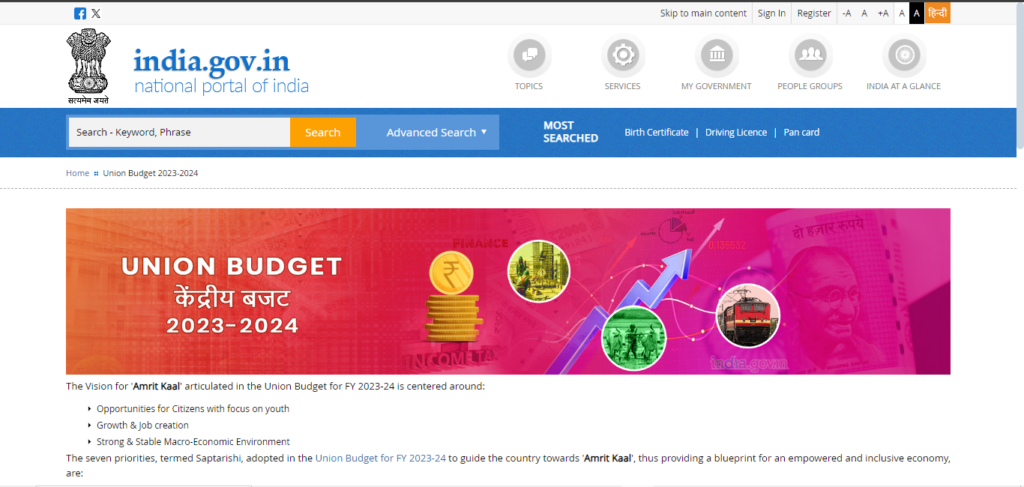
1.1.3.1. Ease of Doing Business;
FM Nirmala Sitharaman addressed that “a lot of steps have been taken on Ease of doing business which will include 11 steps mentioned in the reply. But most importantly decriminalization of 63 offenses and as a result of which companies today can carry out their business without worry about the compliances, this will be supported by a central procession system.”
1.1.3.2. NCLT and NCLAT;
She confirms the appointment of various individuals for NCLT and NCLAT, and the center is working expediently. The center understands the gravity of having appellate tribunals to address and entertain company rights.
1.1.4. DATA From EBS 2024 Presenting in Parliament
Whereas, EBS accounted for various other significant parts. For instance, food inflation, defense, geopolitics, Forex Reserve, etc. EBS also stated that India has sufficient “Forex Reserves” to cover over 10 months of import. Here are some of the Important Data related to significant fiscal properties those are as follows:
1. According to the Economic Budget Survey 2024 the real GDP growth exhibit of FY25 at 6.5%-7%.
2. The service sector played a major role in recruiting and creating jobs and a surge of growth in the construction sector in recent years (However, due to the highly informal nature of the construction sector, the pay structure of the labor force, who come from the agriculture sector is not at optimum level). Thus, it will be reformed and the central government will work on this. Other than this the manufacturing sector has seen a diminishing contribution to job creation.
3. EBS also stated that inequality among income in India observed that the top 1% workforce, has the majority of 6%-7% of the total income share. However, only 10% of the labor force accounted for only having a ⅓ total share of income.
4. As per the global general government, the fiscal deficit (as of GDP %) rose by 16%, as stated by the EBS.
5. The robust boosting in capex and private investment increases the GFC (Gross Fixed Capital) by 9% in real terms in 2023-24.
6. The EBS stated that retail inflation declined to 5.4% in FY2024 from 6.3% in FY23.
7. The CAD stood at 0.7% in FY 2024 from 2.0% GDP in 2023.
8. The EBS stated that Capital formation stands at Rs. 10.9 Lakh cr in FY2024.
9. According to the EBS report, the retail price of fuel consumption for domestic and commercial observed a sharp decline. However, the global energy price index also exhibits a sharp drop.
- The central government cut the cost of LPG cylinders by Rs. 200/- applicable across all the sections in India since August 2023.
- In 2024 CG reduced the price of fuel by Rs. 2 per liter since March 2024.
- However, EBS also noted that fertilizer prices will be weakened but stay resilient from 2015 to 2019.
Now let’s discuss how the new budget of 2024 will impact corporate tax and individual tax slab rates.
1.2. Impact on Corporate Tax and Individual Tax Slab Rates
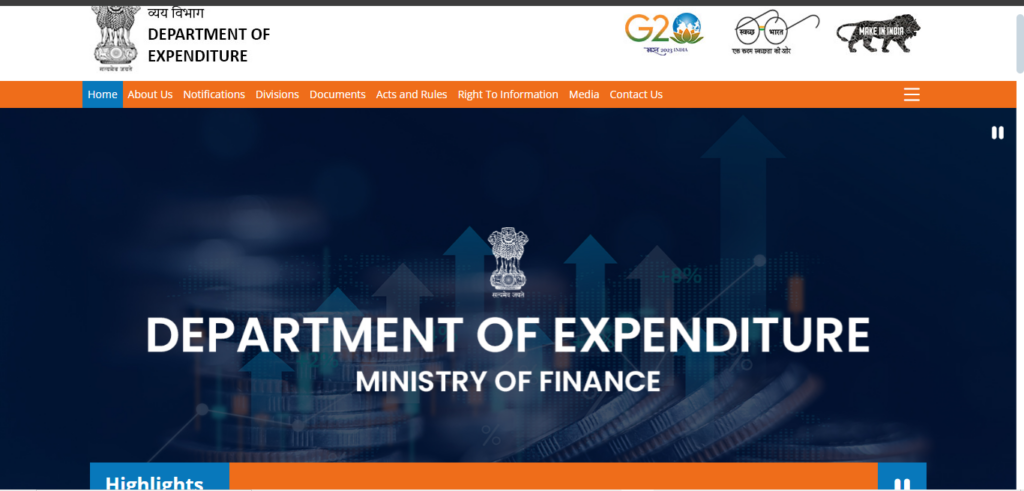
The bad performance of the prominent global economies (USA, Europe, etc.) created a major economic downfall for developing countries that disrupted the supply chain and distribution of resources.
The steep fall in dollar prices (used as the global currency for the export and import of goods) derail the very structure of export and import.
However, It should be noted that a country like India (mixed economy), resists this global economic crisis. Even though, some of the major banks like JP Morgan went bankrupt.
India’s resilient monetary policies and robust foreign diplomacy use this global tragedy as an opportunity. This allows to impact on an individual level for instance wages and at a corporate level.
1.2.1. Expected Reforms in Individual Tax Slab Rate
Reform in Section 80C has not been reformed since 2014. Which includes housing loan principal repayments, tax-saving FDs, employee provident funds, life insurance and premiums, etc. Therefore this section is more versatile and the government can look for some reforms to increase the saving capacity of an individual, while introducing tax deduction norms and policies.
The deduction Limit of S 80C could be reformed. The last reform of this section occurred in 2014. The deduction limit was set at Rs.1.5 lakh in 2014, therefore it is expected to change.
Expected relief under the new tax regime. However, two corresponding tax slabs are presented at the moment. The government may offer more relief to motivate the taxpayers.
The government may also put some relief on the standard tax deduction. To fight the inflation rate of the health sector and other sections, the government should increase the standard tax deduction from 50000 to 100000.
Reform in 80D, deduction by increasing the limit for health insurance premiums. As this topic was discussed in today’s session, the center may make some reforms in this particular section related to investing in the health sector.
1.2.2. Expected Reforms in Corporate Tax Slab Rate
Corporations may see reforms and more relief on “deduction”, custom duty, exemption, etc. However, the government in decades, has invested more in corporate infrastructure. Thus, resulting in boosting economic growth and attracting more foreign investment.
The government is also considering more changes, based on the suggestion from different industrial experts. Moreover, corporate taxes play a crucial role in fiscal deficit management. Thus, the exemption in corporate tax made it flexible for the corporation to invest more in raw materials and technology.
1.3. Conclusion
In conclusion, the corporate tax is more than just a tool for income for the government but an instrument that can open the door to growth and investment opportunities. Though we may have witnessed some of the reforms in custom duty, deduction on research, etc.
